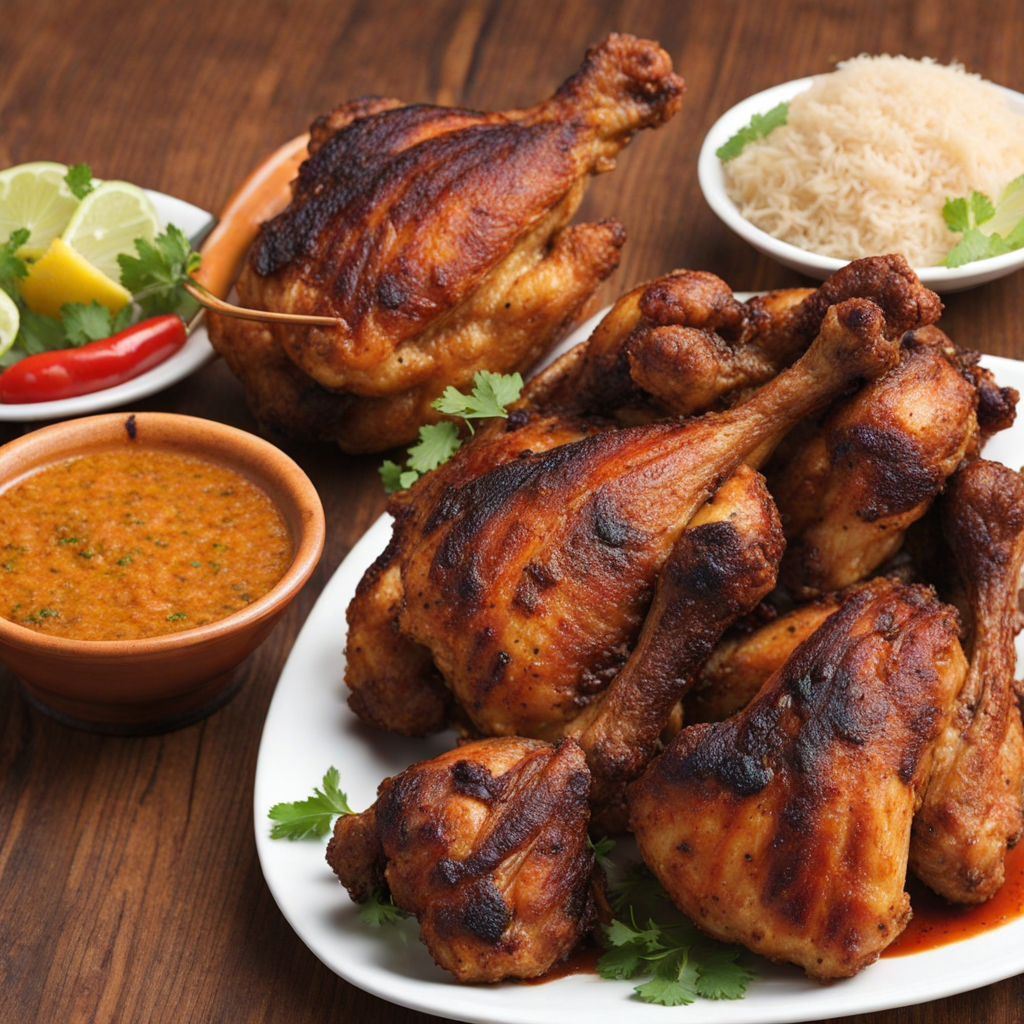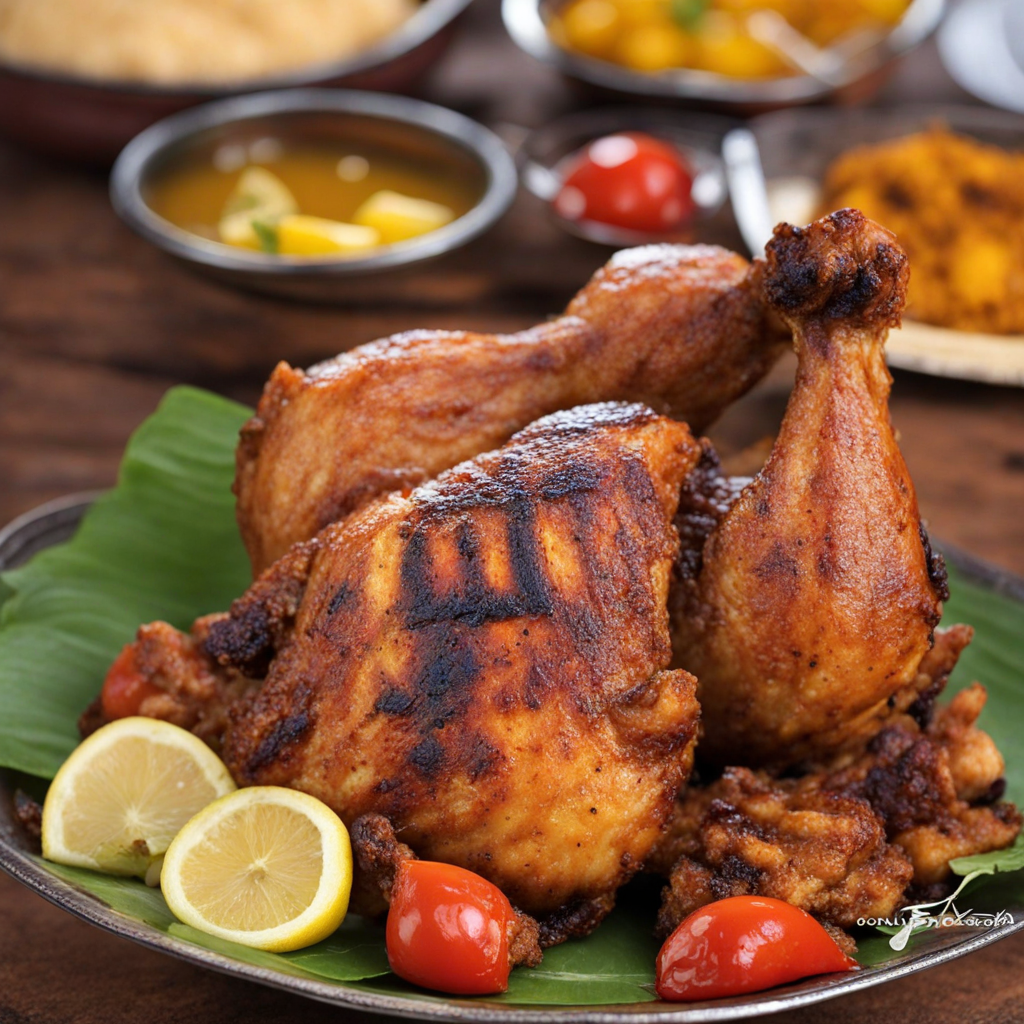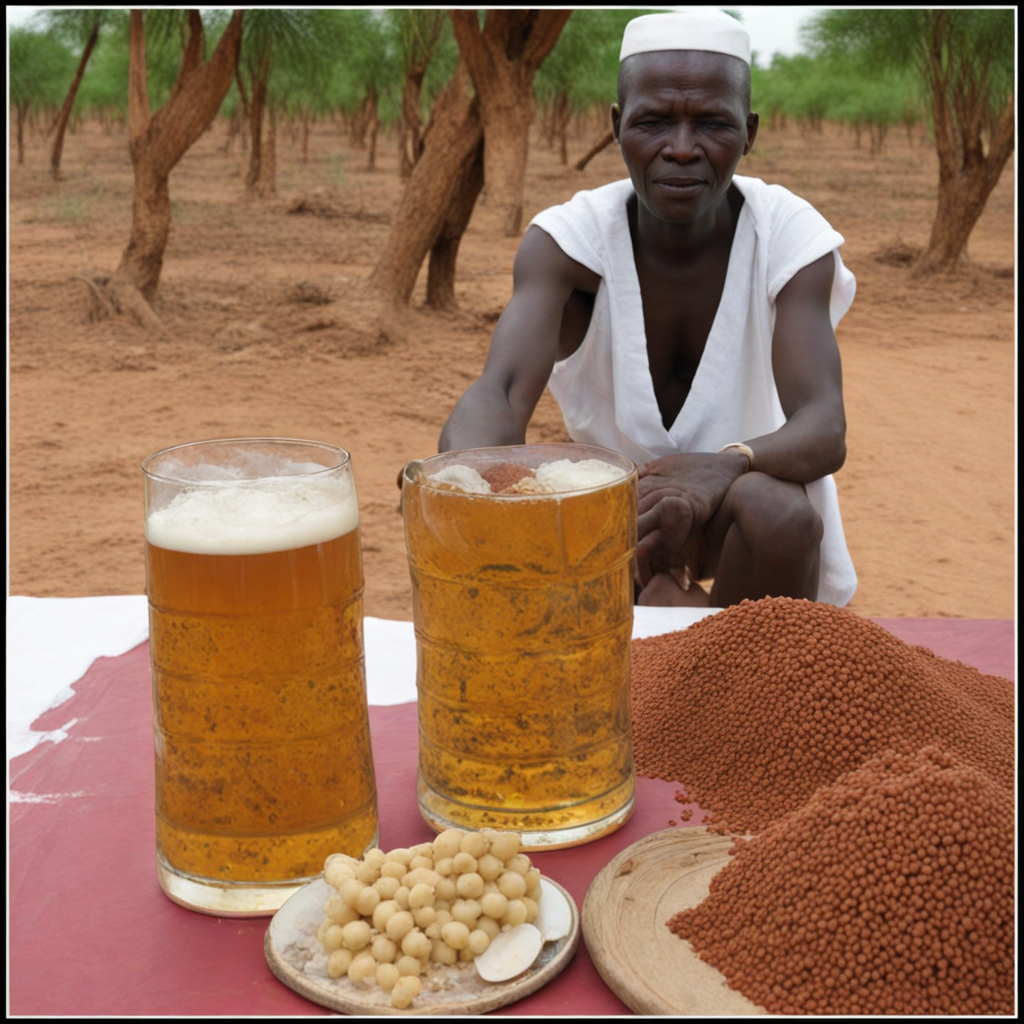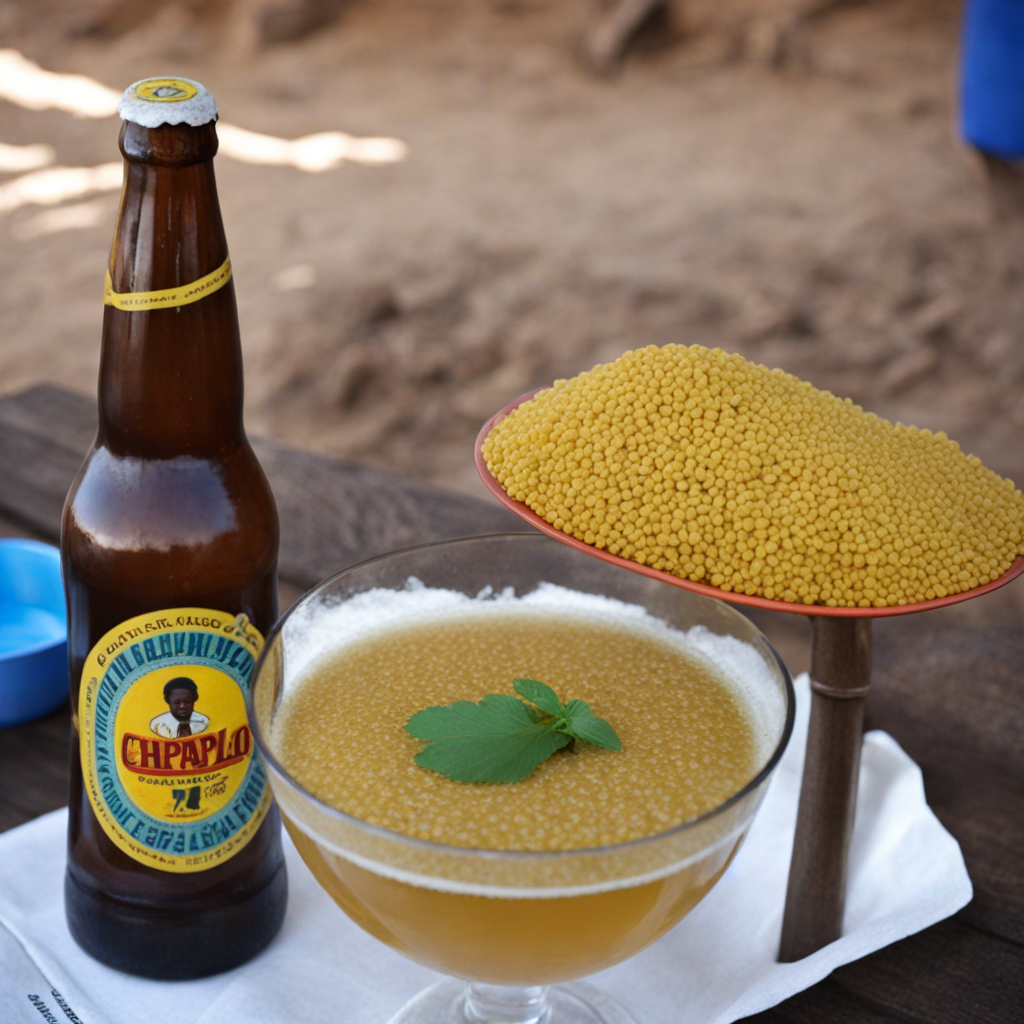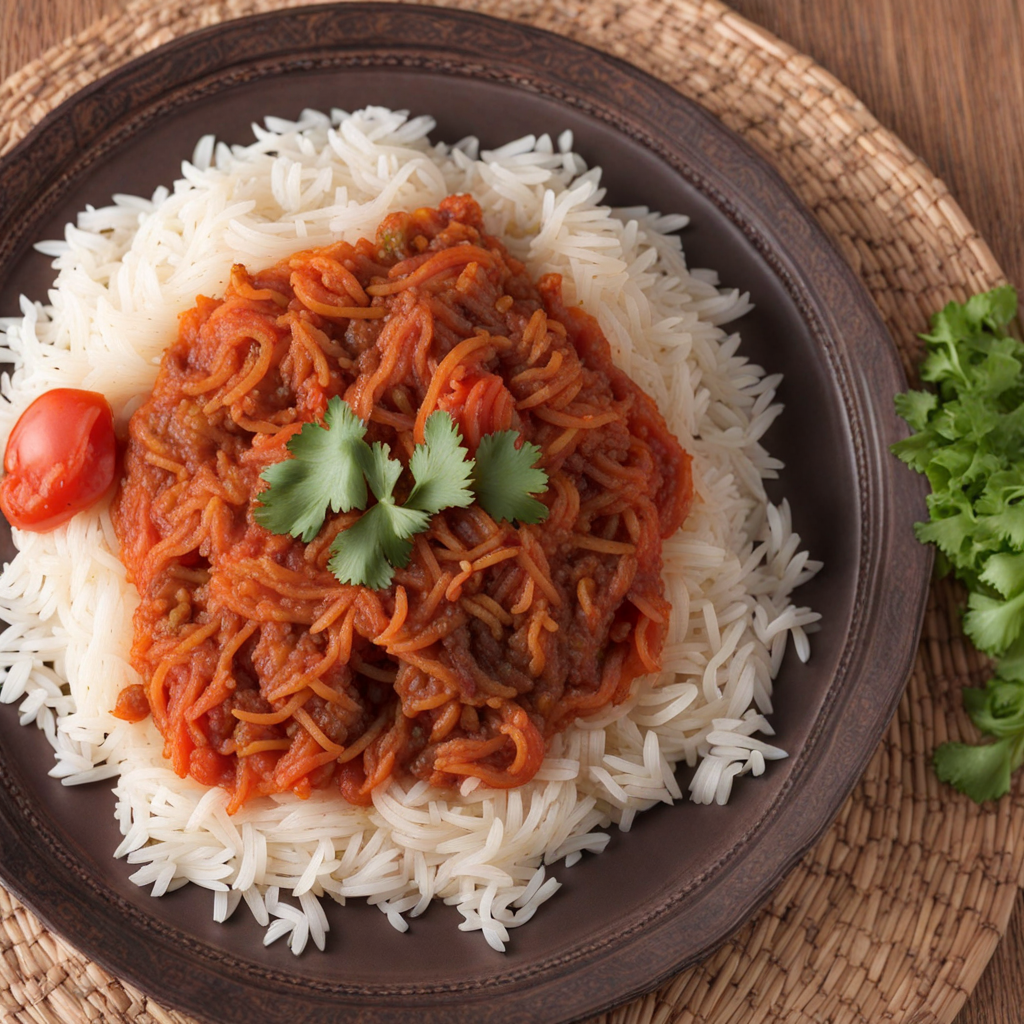Poulet Bicyclette
Poulet Bicyclette is a beloved dish in Burkina Faso, celebrated for its rich flavors and unique preparation method. This dish features free-range chickens that are often raised in a traditional manner, allowing them to roam freely and forage for food. The result is a bird that is not only more flavorful but also has a firmer texture compared to commercially raised chickens. The term "Bicyclette" refers to the way these chickens are often transported to market, typically on bicycles, emphasizing the local and rustic nature of this culinary staple. To prepare Poulet Bicyclette, the chicken is marinated with a blend of spices, herbs, and sometimes citrus, which infuses the meat with a vibrant flavor profile. Common ingredients include garlic, ginger, and a mix of local spices that can deliver a delightful kick. The marinated chicken is then grilled over an open flame, allowing the smoky notes to permeate the meat while keeping it juicy and tender. The grilling process not only enhances the flavor but also creates a beautiful char that adds to the visual appeal of the dish. Poulet Bicyclette is often served alongside traditional sides such as rice, fufu, or a fresh vegetable salad, making it a wholesome and satisfying meal. The dish is typically enjoyed in communal settings, reflecting the warm hospitality of Burkinabé culture. Each bite delivers a taste of the local landscape, inviting you to savor the essence of Burkina Faso’s culinary heritage. It's a dish that not only satisfies hunger but also offers a glimpse into the vibrant culture and traditions of the region.
How It Became This Dish
Poulet Bicyclette: A Culinary Journey Through Burkina Faso Origins and Cultural Significance Poulet Bicyclette, translating to "bicycle chicken," is not just a dish in Burkina Faso; it embodies a rich tapestry of cultural, historical, and social significance. This culinary gem, often celebrated for its distinctive flavor and preparation, has deep roots in the country’s agricultural traditions and the socio-economic dynamics of rural life. The origins of Poulet Bicyclette can be traced back to the expansive rural landscapes of Burkina Faso, where free-range chickens have been raised for generations. Unlike mass-farmed poultry, these chickens roam freely, foraging for grains, insects, and greens. This natural diet, combined with the birds' active lifestyle, imparts a unique flavor and texture to the meat, making it highly sought after in local markets and households. The name "bicyclette" arises from the traditional method of transporting chickens to market. Vendors would often load their prized birds onto bicycles, pedaling through the vibrant streets of towns and villages. This practice not only reflects the ingenuity and resourcefulness of Burkinabé farmers but also highlights the community aspect of food distribution in the country. Each bicycle ride, filled with the clucking of chickens, became a familiar soundtrack of daily life, connecting rural producers with urban consumers. Cultural Context In Burkina Faso, food is deeply intertwined with cultural identity and social structures. Poulet Bicyclette holds a special place in the culinary landscape. Often served during communal gatherings, celebrations, and significant life events, this dish symbolizes hospitality and togetherness. It is not merely a meal but a centerpiece that fosters relationships and strengthens community bonds. The preparation of Poulet Bicyclette is often a communal affair. Families and friends gather to share the labor of marinating, grilling, and serving the dish. Spices, typically including garlic, ginger, and local chili, are used to create a marinade that enhances the chicken's natural flavors. The grilling process, often done over open flames, imbues the chicken with a smoky aroma, making it not just a feast for the stomach but also for the senses. Development Over Time As Burkina Faso has evolved, so too has Poulet Bicyclette. Historically, the dish was a staple for rural families, often prepared during special occasions or market days. However, with urbanization and globalization, the way Poulet Bicyclette is consumed and appreciated has transformed significantly. In recent decades, as more Burkinabé people have migrated to urban areas for work and education, the demand for Poulet Bicyclette has surged. Street vendors have emerged in cities like Ouagadougou and Bobo-Dioulasso, offering this delicacy to city dwellers who crave a taste of home. These vendors have added their own twists, experimenting with different marinades and cooking techniques to cater to diverse palates, while still honoring the traditional roots of the dish. The rise of food tourism in Burkina Faso has also contributed to the dish’s popularity. Tourists seeking authentic culinary experiences are drawn to Poulet Bicyclette, eager to taste a dish that tells the story of the land, its people, and their traditions. Culinary festivals celebrating local cuisine have become platforms for showcasing Poulet Bicyclette, allowing chefs to demonstrate their skills and creativity while preserving the integrity of this beloved dish. Poulet Bicyclette in Contemporary Cuisine In contemporary Burkinabé cuisine, Poulet Bicyclette continues to evolve while remaining a symbol of cultural pride. Chefs and home cooks alike are embracing new cooking methods, including baking and frying, while still keeping the essence of the dish intact. Fusion cuisines have emerged, blending traditional flavors with international influences, leading to innovative interpretations of Poulet Bicyclette that appeal to younger generations. Nutritionists and food activists in Burkina Faso are also advocating for the consumption of locally sourced ingredients, emphasizing the importance of Poulet Bicyclette as a healthier alternative to industrially produced chicken. The awareness of food security and the benefits of supporting local farmers have sparked a renewed interest in traditional dishes, reinforcing the cultural significance of Poulet Bicyclette within the context of sustainable food practices. Moreover, the rise of social media has allowed for a broader dissemination of food culture in Burkina Faso. Home cooks and chefs share recipes, cooking tips, and images of their Poulet Bicyclette creations online, fostering a sense of community and connection among food lovers. This digital platform has not only raised awareness of the dish but has also encouraged a new generation to take pride in their culinary heritage. Conclusion Poulet Bicyclette is more than just a dish; it is a cultural artifact that encapsulates the spirit of Burkina Faso. From its origins as a rural staple to its evolution into a beloved urban delicacy, this dish reflects the resilience and creativity of the Burkinabé people. It serves as a reminder of the importance of community, tradition, and sustainable practices in a rapidly changing world. As Burkina Faso continues to navigate the complexities of modernity, Poulet Bicyclette remains a cherished symbol of identity and belonging. Whether enjoyed at a bustling street stall, a family gathering, or a festive celebration, this dish connects people to their roots, their history, and each other—one bicycle ride at a time.
You may like
Discover local flavors from Burkina Faso


